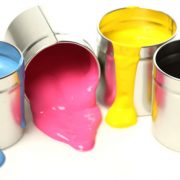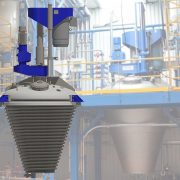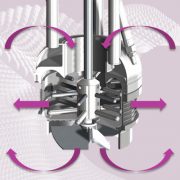How can the viscosity and other specific characteristics of the paint be controlled during the manufacturing process? Viscosity, specific weight or colour are some of the characteristics specific to paint that must be controlled during the manufacturing process. Even if they have been previously determined during formulation, it is necessary to verify that the manufacturing […]
Dispersion is a key phase in paint manufacturing. When it comes to emulsified paints, for example, it is widely considered as the most important phase.
The goal in the dispersion phase is to cause most of the agglomerated pigments and fillers that are part of the formula to be stably separated as individual particles. Read more
What is grading and how is it measured in paints and related materials?
This post provides an overview of the concept of grading and how important it is in the paint manufacturing process.
In the paint industry, the particle size of pigments and fillers that make up the formulas is of great importance, since it determines the characteristics of the final product such as the coverage, gloss or texture of a layer of paint. Read more
In 2010, Oliver and Batlle launched to the market the mixer-disperser of tronco-conical geometry Polimix DPS-ORC. This industrial dissolver has progressively gained an outstanding market position among the industrial machinery for new generation dispersion processes. Read more
What are the differences between available mills in the market? What are the real advantages that make the difference between suppliers?
Basket mills have been around for a while, and many manufacturers of immersion grinding equipment have developed their ranges and proposals for the coatings industry. Various geometries and sizes, multiple agitation shafts and impellers, internal basket configurations, cooling capability, etc. which often make it difficult for users to decide which would best suit their process. Read more





